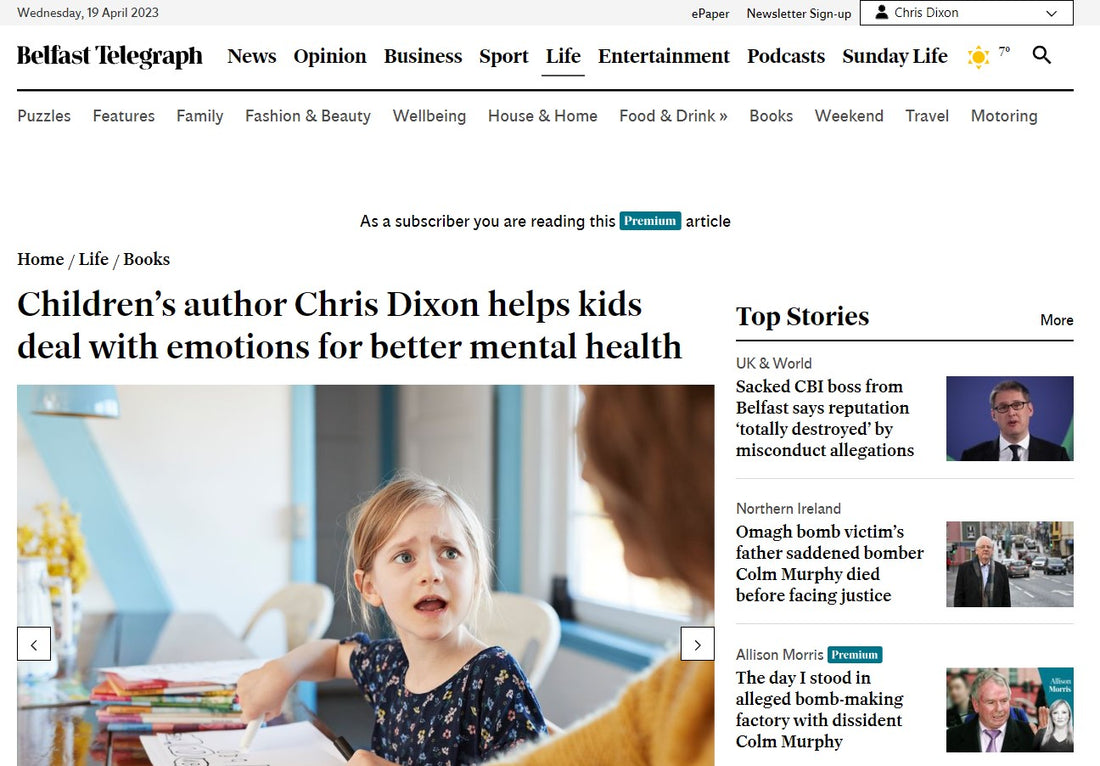
That's Okay: Helping Children With Emotions Belfast Telegraph Article
Share
As a parent, it can be tough to navigate the complex world of children's emotions. That's why I wrote my new book, "That's Okay" to help children understand and manage their feelings in a healthy way.
I was thrilled to recently be featured in the Belfast Telegraph, where I shared my story and my passion for helping kids develop emotional intelligence. Being able to share my message with a wider audience was a dream come true, and I'm so grateful for the opportunity to spread the word about my book.
In "That's Okay," I explore a range of emotions, from happiness and excitement to sadness and anger, and provide practical examples about certain feelings. With engaging illustrations and relatable examples, this book is a valuable resource for parents, teachers, and children alike.
Many of us were raised to believe that certain feelings, such as anger or sadness, are "bad" or "wrong." But the truth is, all emotions are valid and important, and learning to express them in a healthy way is key to overall wellbeing.
Through my book, I hope to empower children to embrace their emotions and develop the skills they need to navigate life's ups and downs with confidence and resilience. I'm honoured to have been featured in the Belfast Telegraph and look forward to reaching even more families with my message of emotional intelligence and empathy.
If you're a parent, grandparent, teacher, or caregiver looking for resources to help children understand and express their emotions, I hope you'll consider checking out "That's Okay." Together, we can create a world where emotional intelligence is valued and nurtured, and children can thrive both inside and outside the classroom.
